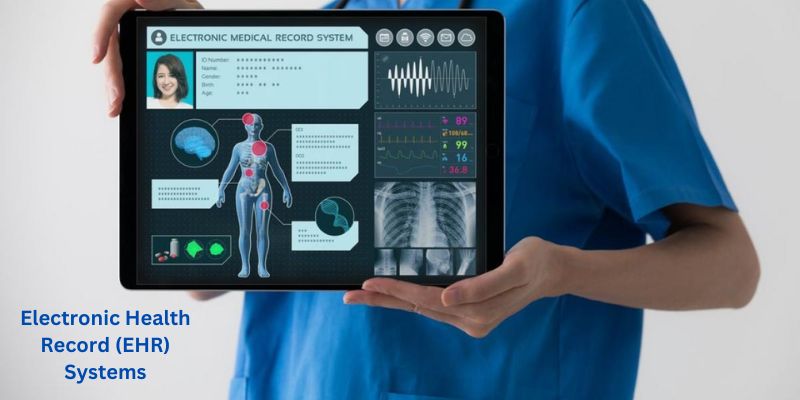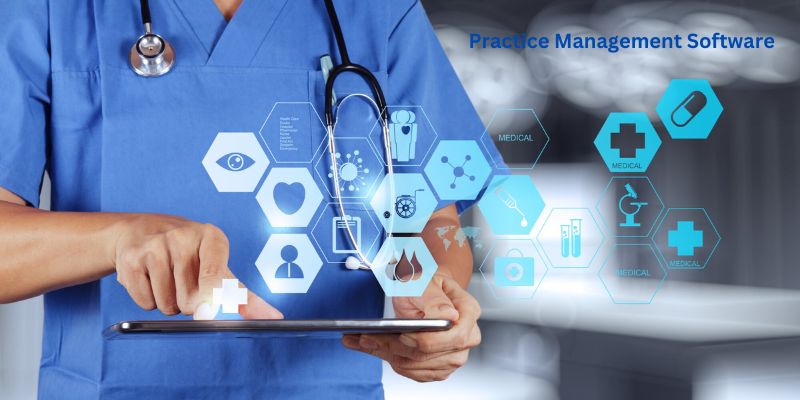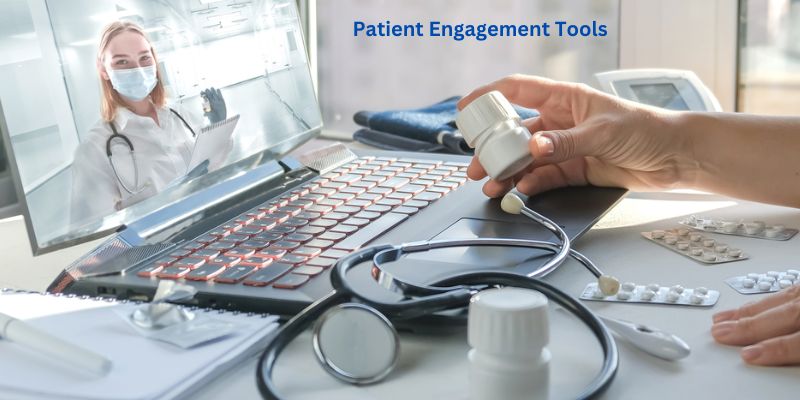The utilization of software solutions in the medical business has grown in importance in recent years. With the rise of electronic health records, telemedicine, and other technology advancements, access to premier software solutions is more crucial than ever for medical practitioners. In this article, techzvn.net will explore the 7 essential leading software solutions for the medical industry and how they are revolutionizing healthcare delivery.
1. Electronic Health Record (EHR) Systems – leading software solutions for the medical industry

EHR (electronic health record) systems rank among the most crucial pieces of leading software solutions for the medical industry. EHR systems enable healthcare professionals to electronically store and access patient health information from any location. Medical personnel can readily monitor patients’ health over time, keep track of prescriptions and treatments, and make well-informed decisions regarding patient care with the use of an EHR system.
Leading EHR platforms like Epic and Cerner provide healthcare providers a variety of capabilities and advantages. In addition to managing appointments and calendars and streamlining patient communications, they make it simple for medical personnel to establish and update patient records.
2. Medical Billing and Coding Software
Software for medical billing and coding is yet another crucial product for the sector. Medical personnel can better manage the challenging process of invoicing and coding for patient care with the aid of these technologies. Healthcare professionals may quickly track patient costs, handle insurance claims, and produce bills with the use of medical billing and coding software.
Leading medical billing and coding software such as Kareo and AdvancedMD provide medical professionals with a wide range of features and benefits. They allow healthcare providers to easily track patient charges, manage insurance claims, and streamline billing and collections.
3. Practice Management Software

Software for practice management is essential for all types of healthcare professionals. By easing administrative activities like scheduling, billing, and patient contacts, these solutions assist medical practitioners in managing their clinics more effectively.
Healthcare practitioners can benefit from a wide range of features and advantages thanks to industry-leading practice management software like NextGen and Greenway. They make it simple for medical personnel to maintain patient data, arrange appointments and calendars, and communicate with patients more effectively.
4. Telemedicine Platforms
Telemedicine platforms are rapidly becoming one of leading software solutions for the medical industry. These platforms allow medical professionals to deliver care to patients remotely, via video or phone calls. With telemedicine platforms, healthcare providers can easily conduct virtual consultations, provide remote monitoring, and offer ongoing support to patients.
Leading telemedicine platforms such as Teladoc and Amwell provide medical professionals with a wide range of features and benefits. They allow healthcare providers to easily conduct virtual consultations, provide remote monitoring, and offer ongoing support to patients.
5. Patient Engagement Tools

Patient engagement tools are another important leading software solutions for the medical industry. These tools help medical professionals engage with patients and encourage them to take an active role in their own care. With patient engagement tools, healthcare providers can easily communicate with patients, educate them on their conditions, and encourage them to make positive lifestyle changes.
Leading patient engagement tools such as Luma Health and Relatient provide healthcare providers with a wide range of features and benefits. They allow medical professionals to easily communicate with patients, educate them on their conditions, and encourage them to make positive lifestyle changes.
6. Artificial Intelligence (AI) and Machine Learning (ML) Tools
Artificial intelligence (AI) and machine learning (ML) tools are rapidly transforming the medical industry. These tools use advanced algorithms and data analysis techniques to help medical professionals make more informed decisions about patient care. With AI and ML tools, healthcare providers can easily analyze patient data, identify potential health risks, and develop personalized treatment plans.
Leading AI and ML tools such as IBM Watson Health and DeepMind Health provide healthcare providers with a wide range of features and benefits. They allow medical professionals to easily analyze patient data, identify potential health risks, and develop personalized treatment plans.
7. Data Analytics and Business Intelligence (BI) Tools
Data analytics and business intelligence (BI) tools are essential leading software solutions for the medical industry that looking to improve their operations and outcomes. These tools allow healthcare providers to analyze data from a variety of sources, identify trends and patterns, and make data-driven decisions.
Leading data analytics and BI tools such as Tableau and Qlik provide medical professionals with a wide range of features and benefits. They allow healthcare providers to easily analyze data from electronic health records, billing systems, and other sources, and identify opportunities to improve patient care and operational efficiency.
In conclusion
The medical industry can greatly benefit from the use of leading software solutions such as electronic health records, medical billing and coding software, practice management software, telemedicine platforms, patient engagement tools, data analytics and business intelligence tools, and cloud-based accounting software solutions. These software solutions can help medical professionals improve patient care, increase operational efficiency, and stay up-to-date with the latest trends and technologies in the healthcare industry. By utilizing these leading software solutions for the medical industry, healthcare providers can provide better care to their patients while also streamlining their own internal processes.
